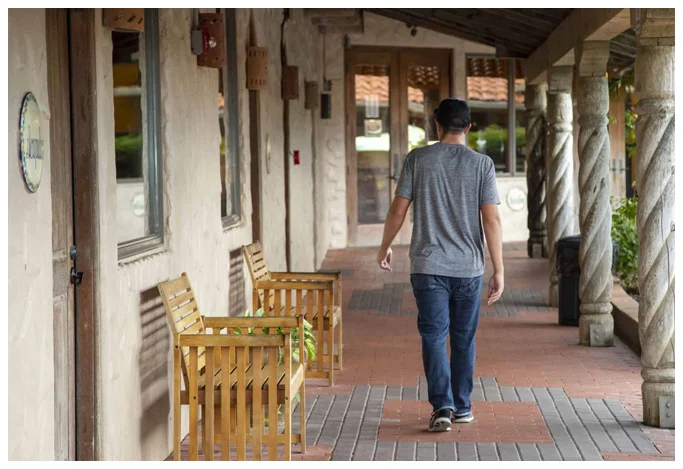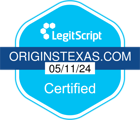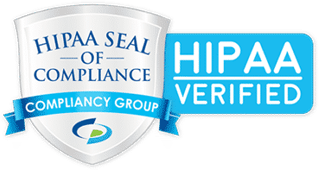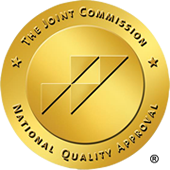Evidence-Based Therapy for Addiction Treatment and Mental Health in TX
You’re not alone in your struggle. Facing addiction or battling addiction alongside a mental health disorder is something millions of Americans experience. In 2024, over 48 million people grappled with substance use, and about 9.2 million adults faced co-occurring disorders like anxiety, depression, or trauma-related conditions. The path to recovery may feel overwhelming, but there is hope.
At Origins Texas Recovery, located on South Padre Island, TX, we understand the unique challenges you face. Our evidence-based therapy for addiction treatment and mental health integrates medical detox, trauma-informed care, CBT, and holistic modalities — all delivered within gender-specific programs tailored to men’s and women’s needs.
In our peaceful, sea‑side retreat, you’ll find a supportive environment where healing can begin. Our expert team crafts personalized treatment plans, from detox through aftercare, designed around your life, your struggles, and your goals.
Your recovery journey is unique. That’s why at Origins Texas Recovery, we offer gender‑specific care through our Origins Recovery Center (men) and Hannah’s House (women) because tailored treatment leads to better outcomes. Wherever you begin, medical detox, inpatient care, outpatient support, or aftercare, you’ll receive comprehensive guidance every step of the way.
With Origins Texas Recovery, you can break free from addiction and co-occurring mental illness and reclaim your life. Speak with admissions and start your journey toward lasting recovery today.


HOW WE INCORPORATE EVIDENCE-BASED THERAPIES FOR RECOVERY
EVALUATING THE EFFECTIVENESS OF EVIDENCE-BASED INTERVENTIONS
You receive care based on proven methods at Origins Recovery. Our addiction treatment professionals carefully track your progress using standardized assessments. This helps measure how well different therapies are working for you.
Evaluating the effectiveness of evidence-based interventions in substance abuse treatment involves several key steps:
- Define Clear Objectives: Establish what success looks like for the intervention. This could include reduced substance use, improved mental health, or enhanced quality of life.
- Use Standardized Measures: Employ validated tools and scales to assess outcomes. These might include surveys, interviews, or biological measures like drug tests.
- Collect Baseline Data: Gather data on participants before the intervention begins to have a point of comparison.
- Implement Control Groups: If possible, use control or comparison groups to determine the intervention’s specific effects.
- Monitor Progress: Regularly assess participants throughout the intervention to track changes and make necessary adjustments.
- Analyze Data: Use statistical methods to evaluate the data collected, looking for significant changes or patterns.
- Consider Long-term Outcomes: Evaluate the sustainability of the intervention’s effects over time, not just immediately after completion.
- Gather Qualitative Feedback: Collect feedback from participants and stakeholders to understand their experiences and perceptions of the intervention.
- Review and Adjust: Use the findings to refine and improve the intervention for future use.
By following these steps, you can systematically assess the effectiveness of addiction treatment interventions and make data-driven decisions to enhance their impact. This is an important part of all treatment programs. Regardless of whether you are enrolled in dual diagnosis treatment or outpatient treatment, we make sure each person’s plan is unique and continuously reviewed.
INTEGRATING EVIDENCE-BASED AND HOLISTIC METHODS
Your addiction therapy services will be science-backed therapies integrated with holistic practices. This gives you a well-rounded approach to healing. Evidence-based treatments like cognitive behavioral therapy address the root causes of addiction.
Integrating evidence-based therapy with holistic methods in addiction treatment involves a thoughtful and balanced approach. Here is how we weave these forms of care:
- Assessment and Personalization: Begin with a comprehensive assessment of the individual’s needs, preferences, and treatment goals. This helps tailor a treatment plan that combines both evidence-based and holistic approaches.
- Education and Informed Consent: Educate clients about the benefits and limitations of both evidence-based therapies (like CBT, and DBT) and holistic methods (such as yoga, meditation, or acupuncture). Ensure they understand how these can complement each other.
- Collaborative Planning: Work with clients to develop a treatment plan that incorporates both approaches. This might involve scheduling traditional therapy sessions alongside holistic practices.
- Interdisciplinary Team: Involve a team of professionals who specialize in different areas. For example, therapists, nutritionists, and holistic practitioners can collaborate to provide comprehensive care.
- Monitor and Adjust: Regularly evaluate the effectiveness of the integrated approach. Use feedback from the client and outcome measures to adjust the treatment plan as needed.
- Focus on Whole-Person Wellness: Emphasize the importance of addressing physical, emotional, and spiritual health. Encourage practices that promote overall well-being, such as exercise, nutrition, and mindfulness.
- Cultural Sensitivity: Be mindful of cultural beliefs and practices that may influence the client’s openness to holistic methods. Integrate culturally appropriate practices when possible.
- Documentation and Research: Keep detailed records of the integrated approach and its outcomes. This can contribute to research and understanding of how holistic methods can complement evidence-based therapies.
By combining these approaches, you can create a more comprehensive and personalized treatment plan that addresses the diverse needs of individuals in addiction recovery.
The mix of treatments is tailored to your unique needs. Staff work with you to find the right balance. This personalized care plan gives you the best chance at long-term success.
Addiction and Mental Health Therapy Modalities at Origins Texas Recovery

Individual therapy, also known as psychotherapy or counseling, is a form of treatment where a person works one-on-one with a trained therapist to explore their thoughts, feelings, and behaviors. The goal is to help the individual understand and resolve personal issues, improve emotional well-being, and develop coping strategies for life’s challenges.
Individual counseling is a versatile and effective treatment option for a wide range of issues, from mental health disorders to personal development and life transitions. Individual counseling can be used in both inpatient and outpatient treatment.
Group therapy is a form of psychotherapy where one or more therapists work with several individuals simultaneously. It is designed to provide a supportive environment where participants can share experiences, gain insights, and develop coping strategies with the help of both the therapist and fellow group members.
Group therapy is effective for a wide range of issues, including mental health disorders, addiction recovery, and personal development. It complements individual counseling by providing additional support and opportunities for growth in a communal setting. Group therapy can be included in dual diagnosis treatment, outpatient treatment, and inpatient programs.
Family therapy is a type of psychological counseling that helps family members improve communication and resolve conflicts. It is designed to address specific issues affecting the health and functioning of a family, such as major life transitions, mental health conditions, or relationship problems.
Family counseling involves multiple family members, although participants can vary. The focus is typically on the interactions and relationships between family members and substance abuse may have affected the family dynamics. There are a variety of approaches available and your therapist will determine what works best for each family.
Family therapy can be beneficial for families dealing with a wide range of issues, including marital problems, parent-child conflicts, substance abuse, and mental health disorders. It aims to create a healthier, more harmonious family dynamic. Family therapy is a staple of most treatment programs because building a support system is paramount to overall treatment success.
Medication-assisted treatment (MAT) is a comprehensive approach to treating substance use disorders, particularly opioid addiction, that combines the use of FDA-approved medications with counseling and behavioral therapies. The goal of MAT is to provide a “whole-patient” approach to treatment, addressing both the physical and psychological aspects of addiction.
Key Components of MAT:
- Medications like methadone, buprenorphine, or naltrexone help with withdrawal symptoms.
- Counseling and behavioral therapies Individual therapy is a versatile and effective treatment option for a wide range of issues, from mental health disorders to personal development and life transitions.
- Comprehensive care includes additional support services such as case management, mental health services, and social support.
MAT is recognized as an effective treatment for opioid and alcohol use disorders and is supported by numerous health organizations, including the Substance Abuse and Mental Health Services Administration (SAMHSA) and the National Institute on Drug Abuse (NIDA). Typically you need to be enrolled in a more structured form of care, like inpatient treatment, to qualify for MAT. MAT is also typically offered as part of dual diagnosis treatment as well.
Cognitive behavioral therapy helps you identify and change unhelpful thoughts and behaviors. You’ll learn to spot negative thinking patterns that fuel addiction. CBT is based on the concept that our thoughts, feelings, and behaviors are interconnected, and that changing negative thought patterns can lead to changes in feelings and behaviors. Your therapist will teach you coping skills to deal with cravings and triggers. CBT sessions often involve:
- Exploring the links between thoughts, feelings, and actions
- Practicing new ways to respond to stress
- Setting goals and solving problems
CBT involves a collaborative effort between the therapist and the client, where they work together to identify distorted thinking patterns and develop healthier ways of thinking and behaving. This therapy can help with both substance abuse and mental health issues. Many people find CBT useful for managing anxiety, depression, and trauma alongside addiction.
DBT was created to treat individuals with borderline personality disorder but has since then been adapted to treat other mental health disorders and even in dual diagnosis treatment. DBT blends acceptance and change to help you cope with intense emotions. The therapy aims to help individuals build a life worth living by balancing acceptance and change, teaching clients to accept their experiences and emotions while also working towards positive behavioral changes. You’ll learn four key skills:
- Mindfulness
- Distress tolerance
- Emotion regulation
- Interpersonal effectiveness
DBT for addiction is typically delivered through a combination of individual counseling sessions, group skills training, and phone coaching, providing clients with comprehensive support. These tools can help you stay calm in tough situations and avoid using substances to cope. DBT works well for people who struggle with mood swings or self-harm. It can also improve your relationships and communication skills.
Motivational Interviewing (MI) is a client-centered counseling approach designed to enhance an individual’s motivation to change by exploring and resolving ambivalence. MI is particularly effective in addressing behaviors related to addiction, health management, and lifestyle changes. The technique is grounded in empathy and collaboration, focusing on the client’s reasons for change rather than imposing external motivations. Through open-ended questions, reflective listening, and affirmations, therapists help clients articulate their goals and the discrepancies between their current behaviors and desired outcomes.
The core principles of Motivational Interviewing include expressing empathy, developing discrepancy, rolling with resistance, and supporting self-efficacy. By expressing empathy, therapists create a safe and non-judgmental environment where clients feel understood and respected. Developing discrepancy involves helping clients recognize the gap between their current behaviors and their broader life goals, which can motivate change. Rolling with resistance means accepting client reluctance as a natural part of the change process, rather than confronting it directly. Finally, supporting self-efficacy involves reinforcing the client’s belief in their ability to change. This approach is effective in various settings, including healthcare, addiction treatment, and mental health counseling, by promoting lasting behavioral change through intrinsic motivation.
Trauma therapy is a specialized form of psychotherapy designed to help individuals process and heal from traumatic experiences. It focuses on understanding the impact of trauma on a person’s mental, emotional, and physical well-being. Trauma therapy employs various therapeutic techniques, such as cognitive-behavioral therapy (CBT), eye movement desensitization and reprocessing (EMDR), and somatic experiencing, to help individuals process traumatic memories and reduce their emotional distress.
This form of counseling empowers individuals by helping them regain control over their lives and emotions, reducing symptoms such as anxiety, depression, and post-traumatic stress disorder (PTSD). By addressing the root causes of trauma, therapy can lead to significant improvements in overall well-being and quality of life. Additionally, trauma therapy often involves building a strong therapeutic relationship, which can provide a sense of safety and support, further facilitating the healing process.
Eye Movement Desensitization and Reprocessing (EMDR) therapy is a structured approach designed to help individuals process and heal from traumatic memories. Developed by Francine Shapiro, EMDR is based on the idea that traumatic memories can become “stuck” in the brain, leading to ongoing psychological distress. The therapy involves several phases, starting with history taking and treatment planning, where the therapist gathers a comprehensive history of the client’s trauma and identifies specific memories to target. Preparation follows, where the therapist explains the EMDR process and teaches coping strategies to manage distress.
The benefits of EMDR therapy are significant, particularly for individuals with post-traumatic stress disorder (PTSD) and other trauma-related conditions. It can lead to rapid and substantial reductions in distressing symptoms, allowing individuals to process traumatic memories without extensively discussing them. By reprocessing these memories, clients often experience improved emotional regulation, reduced anxiety and depression, and enhanced overall well-being.
Contact Our Admissions Team Today

Benefits of Addiction Counseling Services in Texas at Origins Texas Recovery
Therapy services are tailored to meet the unique needs of each individual, considering their specific substance use history, mental health status, and personal circumstances.
Provides emotional and psychological support, helping individuals understand the root causes of their addiction and develop healthier coping mechanisms.
Teaches essential skills for managing cravings, avoiding triggers, and handling stress without resorting to substance use.
Addresses co-occurring mental health disorders, such as depression or anxiety, which often accompany addiction, improving overall mental well-being.
Equips individuals with strategies and tools to prevent relapse, helping them maintain long-term sobriety.
Therapy can improve communication and relationships with family and friends, providing a stronger support network.
Encourages self-reflection and personal growth, helping individuals understand their behaviors and motivations
Group therapy and support groups offer a sense of community and shared experience, reducing feelings of isolation.
Regular therapy sessions provide accountability, encouraging individuals to stay committed to their recovery goals.
Overall, addiction therapy services play a crucial role in helping individuals achieve and maintain sobriety, improve their quality of life, and build a healthier future.
Testimonials
![]()
![]()
![]()
![]()
![]()
Victoria H
I couldn’t recommend Origins more, I first attended their IOP program, then their residential program in South Padre. I’m writing this today a year and a half sober and going strong. Origins has literally saved my life in more ways than one.
![]()
![]()
![]()
![]()
![]()
Emily W
The clinicians are knowledgeable and skilled in a way that is always helpful and never harmful. This program brought me lasting healing and freedom.
![]()
![]()
![]()
![]()
![]()
Mary L
I cannot say enough about Hannah’s House. I entered broken, tired and far more sick than I realized. I was treated with kindness, love, patience and respect by all. I was so frightened to go but sad to leave, that speaks volumes. Thank you from the bottom of my heart to all who put me back together, I am eternally grateful.
![]()
![]()
![]()
![]()
![]()
Jack W
I struggled with my sobriety for over 5 years, but they were able to help me through the 12 steps of AA. I have been sober ever since my experience here. I’ll be hitting 2 years of sobriety in 22 days, thanks to this treatment center. No matter where you go, it’s all about your level of commitment towards gaining a better life ?
![]()
![]()
![]()
![]()
![]()
Jazmine R
Origins was exactly what I needed. The staff were incredibly knowledgeable, compassionate, and helpful. They come with years of experience and consider each individual they’re helping. If you’re looking for a facility that will truly care as much as you/your parents do, or are desperate for a miracle — I can’t recommend Origins more! ❤️
OUR COMPREHENSIVE EVIDENCE-BASED REHAB PROGRAM IN TEXAS

You’ll benefit from our gender-specific programs tailored to address the distinct challenges faced by men and women in recovery. The men’s program focuses on physical wellness and community building, while the women’s program emphasizes trauma work related to relationships and motherhood. This approach allows you to feel more comfortable sharing your experiences and working through sensitive issues.
Our men’s rehab facility, Origins Recovery Center, offers a resort-grade campus with a private gym and personal trainer. You’ll enjoy daily beach walks and community-building activities. At Hannah’s House, our women’s rehab facility, you’ll find an oceanfront location with a private bay and dock. The program here focuses on healing from trauma, toxic family systems, and motherhood-related challenges.
Your treatment plan is uniquely yours. Our team of experts, including medical professionals, therapists, and counselors, work together to create a plan that fits your specific needs. We regularly assess and adjust your plan to ensure it continues to support your progress.
You’ll have access to a variety of evidence-based therapies. These may include:
- Cognitive Behavioral Therapy (CBT)
- Eye Movement Desensitization and Reprocessing (EMDR)
- Motivational Interviewing
- Solution-focused Therapy
We also offer experiential therapies like outdoor pursuits, trust activities, and beach experiences to support your healing process.
Relapse prevention is a vital part of our addiction therapy services. We focus on equipping individuals with the skills and strategies needed to maintain long-term sobriety. It begins with identifying specific triggers—emotional, environmental, or social—that may lead to substance use. From there, individuals work with therapists to develop coping strategies, such as stress management techniques and mindfulness practices, to handle cravings effectively. A detailed relapse prevention plan is crafted, serving as a roadmap for maintaining sobriety.
Relapse prevention planning empowers individuals by giving them a sense of control over their recovery journey, leading to healthier choices and long-term sobriety. Building a strong support network, including family, friends, therapists, and support groups, is crucial for providing encouragement and accountability.
If you’re dealing with both addiction and mental health issues, you’re not alone. Our integrated dual-diagnosis treatment programs address both conditions together. We offer specialized programs for mood disorders, OCD, PTSD, and personality disorders.
Your individualized treatment will include:
- Psychoeducation groups
- Process groups
- Individual therapy sessions
Our goal is to help you understand and manage both your addiction and mental health symptoms, giving you the best chance at long-term recovery.
We track your progress throughout your treatment journey. This helps us make sure you’re getting the most effective care possible. Our team uses regular assessments to measure your progress and adjust your treatment plan as needed.
You’ll have ongoing support even after you complete the program. Our alumni program offers:
- A dedicated care team
- Recovery Coaching
- Accountability groups
This continuous support helps you maintain your recovery and build a fulfilling life after treatment.

SETTING THE STANDARD IN EVIDENCE-BASED CARE
Highly trained experts guide your treatment at Origins Recovery. The clinical team has advanced degrees and certifications in addiction medicine. They stay up-to-date on the latest evidence-based practices through regular training.
Your care continues seamlessly as you move between treatment levels. The team uses proven methods to help you transition from detox to residential care and then to outpatient programs. Even after you complete treatment, you have access to evidence-based aftercare support.
State-of-the-art spaces at Origins Recovery aid your healing process. The women’s center offers ocean views to inspire calm reflection. At the men’s facility, you can work out in a private gym with a trainer to boost your physical and mental health.
You benefit from a range of evidence-based therapies during your stay. Options like EMDR and CBT help you process trauma and build coping skills. Group sessions teach you how to navigate relationships in recovery.
Our family therapy program plays a key role in your treatment at Origins Recovery. Monthly workshops give your loved ones tools to support your sobriety. This family focus helps create a strong support system for long-term success.
Nationally Recognized & Accredited




Find Your Path to Recovery with Evidence-Based Addiction Treatment at Origins Texas Recovery
At Origins Texas Recovery, you’ll find gender-specific programs tailored to men and women. Their South Padre Island facilities offer a peaceful setting for your recovery journey. You’ll benefit from a range of therapies, including cognitive behavioral therapy and eye movement desensitization and reprocessing.
Take the first step towards lasting change. Reach out to Origins Recovery today to speak with an admissions specialist about your options for healing and hope.













